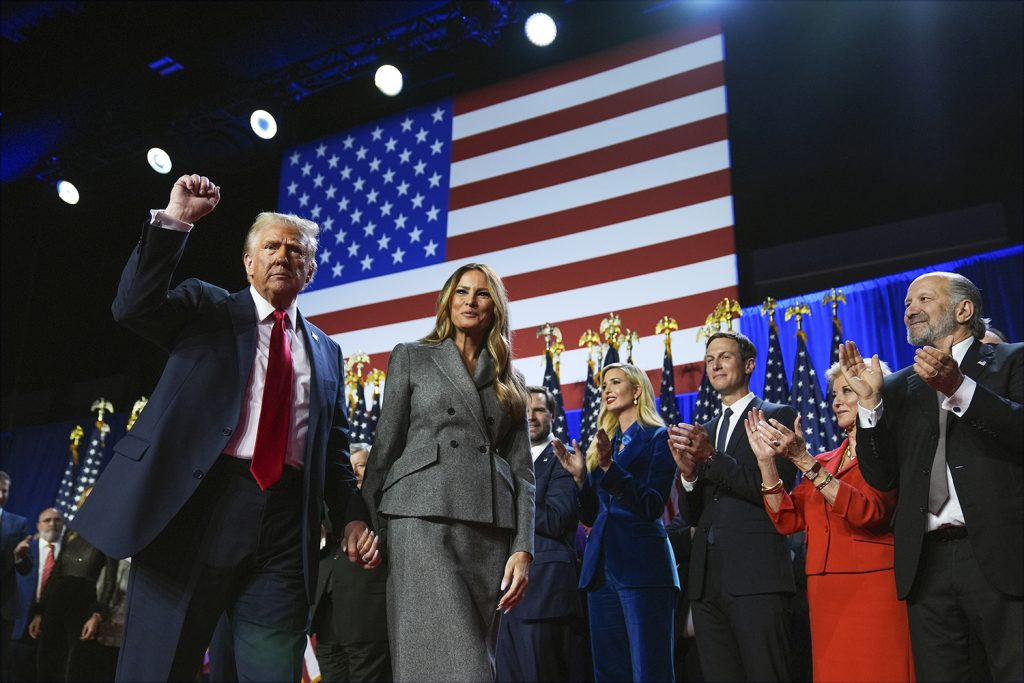
In a stunning upset, Republican candidate Donald Trump not only defeated Democrat Kamala Harris in the 2024 U.S. presidential election but also defied the predictions of polling agencies and political experts. Trump’s victory marked a historic comeback, as he overcame polling projections that consistently favored Harris, proving surveys and political forecasts wrong.
Key Reasons Behind Trump’s Victory
- Economic Appeal and Voter Confidence
The economy was a central pillar of Trump’s campaign, with his message resonating among voters concerned about inflation, unemployment, and economic stability. Trump’s promises to reduce taxes, deregulate industries, and create jobs positioned him as a champion for middle- and working-class Americans. His message of “bringing jobs back to America” and bolstering domestic production struck a chord with voters who felt the economic impacts of the previous administration’s policies. - Commitment to Ending Foreign Wars
Trump’s position on peace and his promise to “end endless wars” aligned well with an American public increasingly wary of prolonged foreign conflicts. His campaign repeatedly emphasized the financial and human costs of these engagements, suggesting that funds could instead benefit American infrastructure, healthcare, and education. This stance attracted not only conservative voters but also some independents and Democrats who shared concerns about U.S. military involvement abroad. - Religious Community Support
Trump’s policies and rhetoric on issues such as religious freedom, traditional values, and family resonated with multiple religious communities. By positioning himself as a defender of religious rights, Trump garnered support across Christian, Jewish, and other faith-based groups. This support was especially strong among evangelical Christians, whose priorities on social issues aligned with Trump’s policies. - Immigration Policies
Trump’s stance on immigration, advocating for stricter border control and reduced illegal immigration, was popular among his base. He highlighted border security as essential for American safety and economic health, which appealed to voters concerned about labor competition, national security, and cultural integration. - Stances on Abortion and Transgender Issues
Abortion policy and transgender rights were significant topics in the election, with Trump taking a conservative stance. He advocated for more restrictive abortion laws and opposed gender-affirming medical care for minors. Many conservative voters saw Trump as a protector of traditional values, standing in contrast to Harris’s support for more progressive policies in these areas. This ideological divide mobilized socially conservative voters, who felt that Trump represented their beliefs and family values. - The “America First” Agenda
Trump’s slogan, “Make America Great Again,” echoed throughout his campaign, with promises to prioritize American interests in trade, foreign policy, and domestic matters. His populist message rallied those who felt neglected by globalization and disenfranchised by previous administrations. This broad appeal enabled him to mobilize voters across a diverse demographic range, including those in rural areas and the industrial Midwest.
The Polling Miss and Trump’s Unconventional Campaign Strategy
Trump’s success in 2024 underscored the challenges pollsters face in capturing the sentiments of his supporters, many of whom are distrustful of mainstream media and polling institutions. His campaign leveraged alternative media platforms and grassroots outreach, bypassing traditional media channels to reach voters directly. This strategy, along with active support from influential figures like Elon Musk, amplified Trump’s message and further eroded confidence in traditional polling predictions.
In summary, Donald Trump’s victory in the 2024 U.S. presidential election was propelled by his economic policies, promises of peace, strong support from religious and socially conservative communities, and a steadfast commitment to prioritizing American interests. His ability to connect with voters on these critical issues allowed him to overcome both his opponent and the polling predictions, securing a remarkable and historic win.